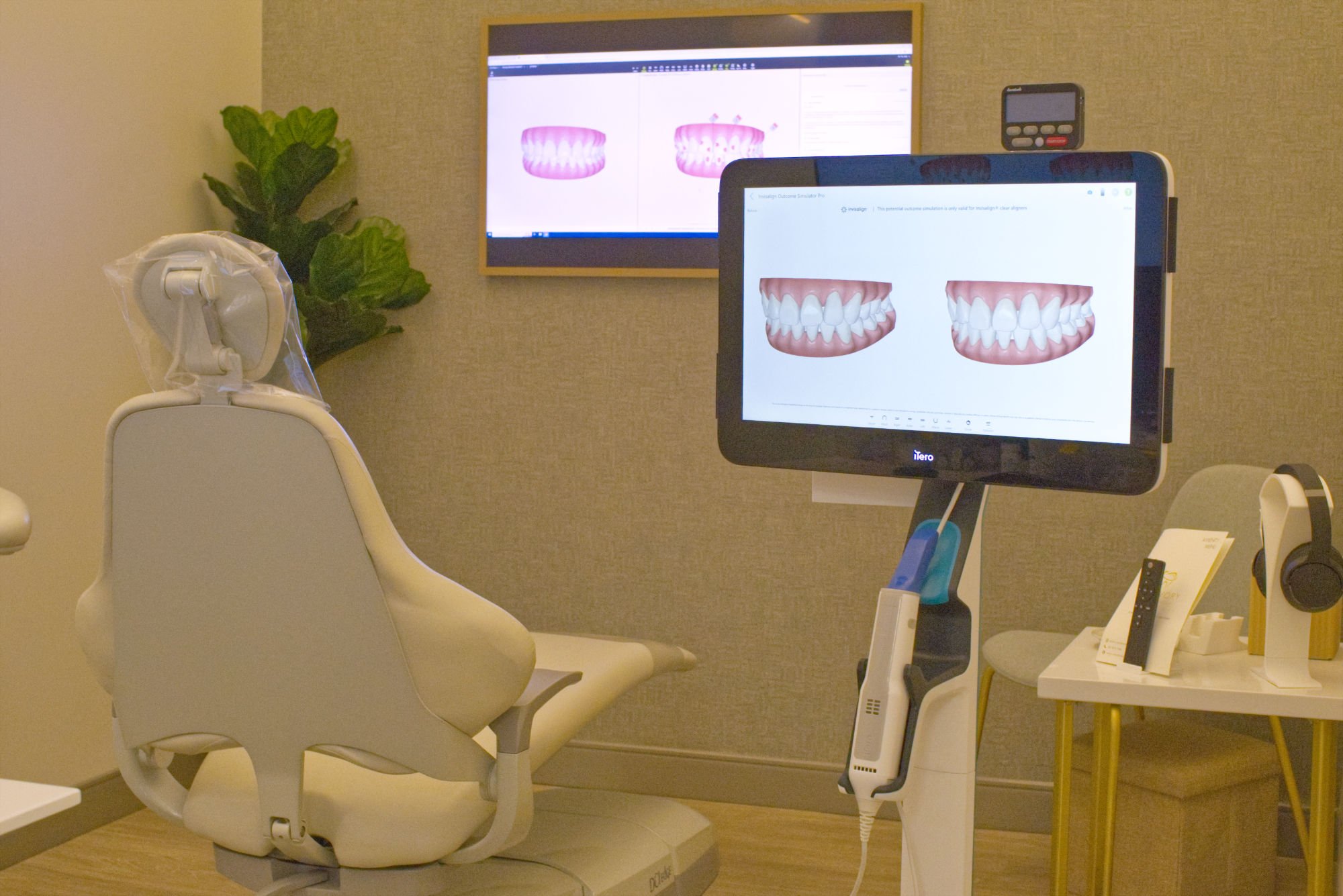
Custom Night Guards
For patients with teeth grinding, clenching, or jaw pain related to temporomandibular joint issues, we can make custom night guard appliances to help manage the symptoms better.
If you’ve been managing TMJ symptoms or preventing wear on your teeth from grinding at night, you will probably already know if a new or better-fitting night guard is right for you. Sometimes, a night guard may be too worn to be effective, or perhaps you’ve recently had dental work such as fillings, crowns, or Invisalign, making the night guard fit poorly and might be less effective. In this case, please call us for an appointment so we can help you fabricate a new, custom-fitted night guard!
Perhaps you have been managing with an “over-the-counter” guard, which you typically will soften in hot water to fit. These certainly can work for some patients. However, the thickness and insufficient fit usually mean they aren’t enough for many patients. When a guard is too thick, it can cause more strain and discomfort on the muscles, leading to the patient habitually not wearing the appliance at all. For this situation, it would be best to schedule a consultation with our office to find the best fit and materials for your situation.
Many patients also aren’t sure if they should wear a night guard. If you have been grinding your teeth, your Winter Park dentist will be one of the first to notice the signs of grinding (surfaces of your teeth may be worn or showing small cracks from pressure). This may increase sensitivity or cause you to see your natural tooth structure breaking or old fillings and crowns. However, if you have been waking up with sore muscles and jaw pain, this is a common sign that you may be clenching your teeth during your sleep or in periods of stress.
What kind of night guards are available?
Depending on your specific symptoms, lifestyle, and comfort, Dr. Lina Yu will consult you on various options to fabricate a guard that you can use regularly. One thing we notice for our patients is that without a comfortable nightguard, it is challenging to start wearing it nightly. Without this habit, the night guard does not help prevent anything and is not helpful for the patient's condition.
Comfort hard/soft guard – the most popular option combines hard and soft materials. The top of the guard is a stiffer resin material to resist the wear from grinding teeth, but it is not too hard to damage your teeth. The inner bottom of the guard is made of a softer material, which provides cushion. For patients who clench their teeth, this softer cushion can help spread the forces evenly across your teeth to withstand your bite forces better.
Slim hard nightguard – for patients who need a slimmer night guard appliance, commonly patients who may have a more petite mouth or have a gag reflex, this type of night guard is made from solid 3D printed resin to provide a thinner but still protective and long-lasting night guard. Because there is no soft cushion on this type of guard, it may not be a good choice for those who clench their teeth
Full soft nightguard—For those who need a slimmer nightguard but still need a cushioned or flexible appliance, this soft nightguard is made from a thinner and flexible PVA sheet. The one disadvantage of this type is that it may not last nearly as long as other types, as the material is soft and wears quickly from use.
Ultra-thin / retainers – in rare cases, some of our patients cannot develop habitual use of a night guard due to discomfort. While we typically do not recommend this as a first step, some of our patients can successfully manage their grinding and tooth wear by using the thin (about 1-2mm) retainers we create for our Invisalign patients. Due to the thin nature of these retainers, they do not hold up to much wear. However, wearing and grinding the plastic retainers is better than damaging your teeth.
Should my nightguard be made for the top or bottom arch? Should I have both?
A patient would typically never wear a top and bottom night guard. Guards are designed to protect both top and bottom teeth within a single appliance. To determine the best placement, Dr. Lina Yu will consult with the patient for the best comfort and usage. Typically, night guards made for wear on the bottom arch are the most comfortable for patients. However, some patients may have crowding, dental conditions, or other reasons to use an upper arch nightguard instead.
Can your office make all types of nightguards?
While our office can help fabricate a wide variety of night guards to cover the most common conditions, there are numerous specialty guards for treating special TMJ or sleep apnea conditions. We are unable to provide these types of appliances and believe they are best provided by a treating specialist.
Is the process of getting a night guard uncomfortable?
Not at all! Our office uses a 3D dental scanner, which works by using a small wand to take several photos and scans of your mouth to create a model that can be used and reused for nightguards or any other appliances. We no longer need to use impression materials, which some patients find uncomfortable due to the “sticky and gooey” feeling.
If you are considering a night guard or need a professional dental opinion on the right type, please get in touch with our office or book an appointment online!




